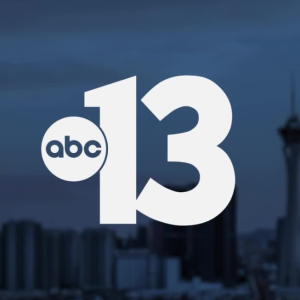LAS VEGAS (KTNV) — Lawyers for the Clark County School District teachers' union on Tuesday asked a Southern Nevada judge to dismiss the school district's legal action against the union.
The argument hinges on whether or not the Clark County Education Association and its educators have threatened a strike — which would be against Nevada law. School district lawyers argue they have, and filed a legal action asking a District Court judge to stop them.
In Tuesday's court filing, lawyers for the union asked the court to "end this politically-driven lawsuit at the earliest possible moment."
Union educators and leadership are aware that it's illegal for them to formally strike, lawyers argued in the filing, but maintain the comments cited by the district as evidence of an imminent strike are insufficient for an injunction.
We asked John Vellardita, executive director of the CCEA what is next in this process.
"The district has seven days to respond to that," he told us.
The union and district will meet again at the bargaining table next week on August 17 and 18.
In lieu of a strike, union leadership have discussed a possible "work action." The recent court filing outlines more clearly what that might entail.
Clark County teachers are contractually obligated to work 7 hours and 11 minutes per day — but teachers often work "well beyond" that time period to meet with parents and students or support extra-curricular activities, union lawyers stated.
A "work action," they argued, "would mean the District gets, every day, exactly what it bargained for and what it pays for: 7 hours and 11 minutes. The District has no claim on work beyond those hours."
13 INVESTIGATES: Clark County School District, teachers union have long history of contract controversy
Beyond outlining their case that the teachers' union's comments during ongoing contract negotiations with CCSD don't amount to a threat of striking, union lawyers pleaded with the court to exercise restraint in considering the district's lawsuit.
"It would be manifestly unfair and unnecessary to issue an injunction against CCEA ordering it to obey laws it has not broken and does not appear imminently poised to break," they argued.
Tuesday afternoon, CCSD issued a statement doubling down on its position that the union's threat of a work action is, in its eyes, a threat to strike.
"Nevada law is crystal clear that a strike or a threat of a strike or work stoppage is unlawful and is grounds for withdrawal of recognition as the bargaining agent of a local government employee group," district officials stated in part.
On Monday, the first day of school, Superintendent Doctor Jesus Jara said teachers deserve a raise.
"I am not denying teachers should be compensated I think our teachers deserve a raise, I am trying to get it to them it needs to hit the bargaining table," Jara said.
Jara continued, saying the two parties are still off by $250 million in negotiations.
Here is the district's full statement:
The Clark County School District does not take CCEA’s threats of illegal strikes or “work actions” lightly as our educators await a new contract. Nevada law is crystal clear that a strike or a threat of a strike or work stoppage is unlawful and is grounds for withdrawal of recognition as the bargaining agent of a local government employee group. To protect our students and their families, we took the necessary step to ensure the ongoing operations of ensuring students receive the education they deserve.
Negotiating occurs at the bargaining table, not in public. CCEA’s continued threats do not move the parties closer to reaching a new agreement and are a disservice to the District’s students, parents, and staff.
Why is it against the law for teachers to strike in Nevada?
The first strike by teachers in Nevada happened in the 1960s and led to a new state law creating what's called "impasse arbitration." It makes striking illegal and mandates that employers and unions must argue in good faith. "Good faith" bargaining hasn't legally taken place unless both parties meet at least four times. After that, they can make a case that they're at an impasse and want to go to arbitration.





